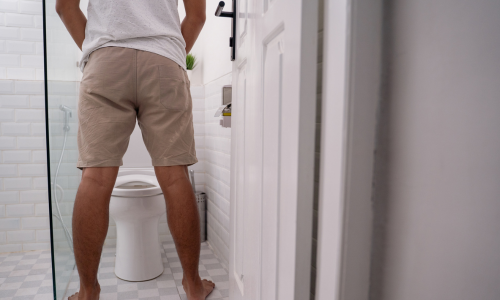Introduction
Urinary incontinence can be a challenging condition, but it’s important to remember that you’re not alone and that there are options to manage it. By understanding the possible causes and following a few simple tips, you can improve your bladder control and increase your quality of life.
What is urinary incontinence?
Urinary incontinence refers to the inability to control your urination, which can lead to unwanted urine leakage. This can range from occasional leaks to complete inability to control your bladder. It can be a temporary problem or a chronic condition.
Possible causes of urinary incontinence
There are several factors that can cause urinary incontinence, including:
- Weakened pelvic floor muscles: The pelvic floor muscles play an important role in regulating bladder function. If these muscles are weakened, it may be more difficult to control your urination.
- Hormonal changes: Hormonal changes, such as those during pregnancy, menopause, or hormonal therapies, can affect bladder function and contribute to urinary incontinence.
- Neurological conditions: Problems with the nervous system, such as multiple sclerosis, stroke, or spinal cord disorders, can disrupt communication between the bladder and the brain, causing urinary incontinence.
- Medication: Some medications, such as diuretics, antidepressants, and sleeping pills, can cause urinary incontinence as a side effect.
- Age: Aging can lead to changes in bladder function and muscle strength, making urinary incontinence more common in older adults.
Tips to manage urinary incontinence
Although urinary incontinence can be uncomfortable, there are ways to manage it and improve your quality of life. Here are some tips:
- Pelvic floor exercises : Strengthening your pelvic floor muscles can help improve bladder control. Consider incorporating regular pelvic floor exercises into your daily routine.
- Urinary Routine: Try to go to the toilet regularly, even if you don’t feel a strong urge. This can help prevent your bladder from becoming too full and causing leaks.
- Diet and fluid intake : Avoid caffeine and alcohol, as these substances can irritate the bladder and worsen urinary incontinence. Make sure to drink plenty of water to stay hydrated, but avoid drinking large amounts close to bedtime.
- Medical Treatment: See a doctor if you experience frequent urinary incontinence. There are several treatments available, including medication, physical therapy, and in some cases surgery, that can help manage symptoms.
Conclusion
Urinary incontinence can be a challenging condition, but it’s important to remember that you’re not alone and that there are options to manage it. By understanding the possible causes and following a few simple tips, you can improve your bladder control and increase your quality of life.



















